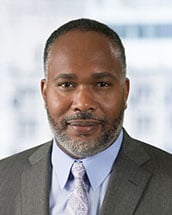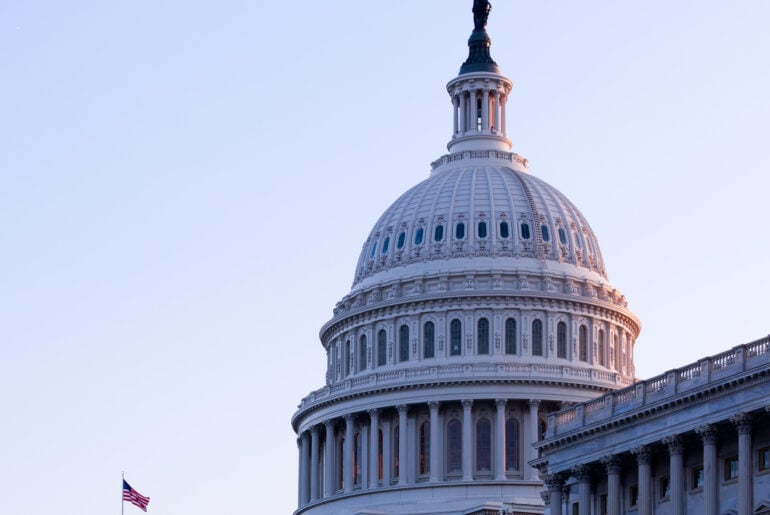In brief
On 11 May 2023, GCI Communications Corp. (GCI) agreed to pay more than USD 40 million to the US government to settle allegations that it submitted false claims to the Federal Communications Commission (FCC) by knowingly inflating its prices in a competitive bidding program regulated by the FCC. The investigation began when a former GCI employee, Robert Taylor, filed a qui tam action against the company under the False Claims Act (FCA) after it allegedly falsely claimed and received funds from the FCC’s Rural Health Care Program (RHC Program). This settlement signals the DOJ’s intent to partner with other government agencies, in this case the FCC, in using the False Claims Act to combat fraud by organizations that service health care providers. It is also one of the DOJ’s largest settlements of allegations under the FCA in 2023.
Content
- Background
- Procedural history
- Settlement
- Why it matters
- Takeaways
Background
GCI is a facilities-based telecommunications service provider that offers bandwidth services to health care providers in rural areas of Alaska. The company engaged in a competitive bidding program that is regulated by the FCC. The program provides reduced rates to rural health care providers for telecommunications services used for telemedicine and telehealth. GCI provided these services through the RHC Program[1] which offers funding to eligible public or non-profit health care providers for broadband and telecommunications services necessary for the provision of health care. In accordance with the FCC’s regulatory function under the RHC Program, services are discounted at the difference between the cost of more expensive telecommunications services in a rural area and the less expensive cost for the same service in an urban area. The government subsidized GCI for the difference in costs once it certified expenses via invoice and other required documentation. It is a violation of the FCC’s regulations to underreport revenue to the FCC that has been received.[2] Increasing prices or altering the agreement between health care providers, after the bidding process has concluded, is also a violation of the FCC’s regulations.[3]
The qui tam relator was employed by GCI as the Director of Business Administration during the period applicable to the allegations stemming from this settlement. The Relator claimed that from April 2015 through November 2018 GCI submitted false claims to the FCC through the Universal Service Administrative Company (USAC) and caused Eastern Aleutian Tribes Inc. (Eastern Aleutian), a rural health care provider, to submit false claims for inflated RHC Program disbursements. This alleged fraud manifested as a bid rigging scheme[4] in which GCI won a bid to contract with Eastern Aleutian at a lower price and then increased the bidding amount without the FCC’s detection. Then, GCI submitted the higher bidding price to the USAC, and received reimbursement it otherwise should not have earned. Although the Relator purportedly informed a GCI executive of the company’s malfeasance, GCI continued to misreport claims to the government. The FCA requires that a false record or statement to the government be made with knowledge of the falsity and the Relator contended[5] that GCI knowingly defrauded the government. Subsequent to the Relator’s report, he was laid off by GCI.[6] The Relator filed a FCA action shortly thereafter.
Procedural history
On 12 December 2019, the Relator filed a qui tam action under the FCA, alleging that GCI falsely claimed and received funds from the FCC’s RHC Program in connection with a contract between GCI and Eastern Aleutian.
On 23 January 2020, the Relator filed an amended complaint which included allegations that GCI caused health care providers to purchase unnecessarily high bandwidths and that GCI understated the contributions GCI was required to pay to the government, as a telecommunications provider, under the RHC Program.
On 22 June 2021, the Relator filed a second amended complaint adding allegations that GCI falsely claimed and received funds from the RHC Program based upon rural telecommunications rates GCI calculated in violation of FCC regulations. Further, the complaint alleged that GCI violated the FCC’s requirement that GCI only charge the lowest corresponding price.
Between 2020 and 2023 the United States filed several ex parte applications for an extension of time to consider whether to elect to intervene. The District Court for the Western District of Washington accepted those applications so as to allow an investigation into the Relator’s complaints. On 10 May 2023 the United States elected to intervene in part for the purpose of settlement in accordance with 31 U.S.C. § 3730(b)(2) and (4).
Settlement
GCI agreed to pay more than USD 40 million to the US government to settle fraud allegations and committed to a compliance agreement requiring GCI to adhere to certain conditions regarding its future participation in the RHC Program.
The settlement agreement does not include any admission of fault or liability on the part of GCI.
Why it matters
This settlement signals that the DOJ and FCC are interested in combatting misuse of government funds by actors who service health care providers in rural areas. Moreover, the settlement demonstrates the DOJ’s continued reliance on whistleblowers in its enforcement approach. The government has indicated that it is monitoring fraudulent activity vis-a-vis federal welfare programs, like the RHC Program. Accordingly, telecommunication providers and other service suppliers to health care organizations are expected to comply with the regulations of these programs and may incur heavy financial penalties if they do not.
Takeaways
- Participation in bidding programs facilitated by government agencies, like the FCC, may expose recipients to joint enforcement by both the DOJ, through the FCA, and the relevant agency’s enforcement branch. Here, GCI agreed to repay more than USD 26 million to the FCC, and pay over USD 6 million to the Relator for the FCA suit. GCI also must adhere to a detailed FCC Compliance Agreement.
- Price increases for services paid for with government funds should be subject to internal approvals. An ex post inflation of a price or rate paid by the government can be key to determining a false claim under the FCA. GCI allegedly increased prices and rates to rural health care providers after the bidding process ended, thus receiving pay that was not consistent with the FCC’s regulations and led to the settlement of false claim allegations under the FCA.
- Recipients of government funds should consider assigning dedicated resources to fraud-prevention that operate independently from their government transaction arm, for internal auditing purposes. In this case, a GCI employee caused a large portion of the purported fraudulent acts, but GCI, as an entity, paid millions to settle these allegations. GCI is now required to designate a Compliance Officer who is responsible for compliance with the RHC Program.
- Companies should ensure that they have adequate processes in place to receive and triage whistleblower complaints. Complaints relating to non-compliance with government contracting requirements should be properly funneled to the right investigations teams to avoid FCA liability. The FCC Compliance Agreement requires GCI to maintain a compliance program that allows anonymous reporting by employees, and requires compliance training for employees and subcontractors. Recipients of government funds should consider proactively mirroring this program for procurement compliance purposes. It may also benefit recipients to retain outside counsel to conduct risk assessments to identify gaps in existing procedures and ensure compliance with government requirements.
- Implementing appropriate document retention protocols is necessary to support government reimbursement claims and can help ensure compliance and mitigate risk of impropriety. The Relator in this matter discovered GCI’s false claims through the company’s archives and records which contained the unaltered original bids in accordance with the RHC Program.
[1] 47 U.S.C.§ 254(h)(1)(a).The Telecom Program is a funded program within the RHC Program. It was established in 1997 and seeks to ensure that rural health care providers pay no more than their urban counterparts for eligible telecommunications services.
[2] Amended Complaint at 9, U.S. ex rel. Taylor v. GCI Liberty, et al., Case No. 19-cv-2029 (W.D. Wash.).
[3] GCI Agreement at 2, U.S. ex rel. Taylor v. GCI Liberty, et al., Case No. 19-cv-2029 (W.D. Wash.).
[4] Amended Complaint at 7–9, U.S. ex rel. Taylor v. GCI Liberty, et al., Case No. 19-cv-2029 (W.D. Wash.).
[5] Amended Complaint at 9, U.S. ex rel. Taylor v. GCI Liberty, et al., Case No. 19-cv-2029 (W.D. Wash.).
[6] Amended Complaint at 9, U.S. ex rel. Taylor v. GCI Liberty, et al., Case No. 19-cv-2029 (W.D. Wash.).





